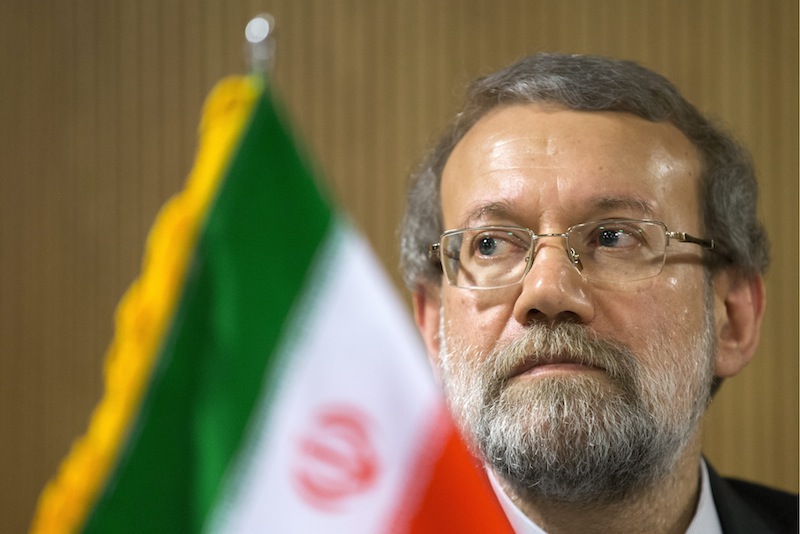Imagine yourself locked in round after round of high-stakes brinksmanship with a political adversary. You thrust and parry with the opponent to gain whatever advantage you can, yet never conclusively so. Despite sharp disagreements and seemingly intractable problems, both sides not only keep at it but stay within certain bounds. As long as there’s a chance the problems could still be resolved, better not to escalate.
That possibility of a mutually acceptable resolution — or trading smaller concessions along the way –i s what binds adversaries in a limited political conflict. But then suppose you become convinced that your counterpart’s true objective is to thwart you, with no intention of ceding ground or reaching meaningful compromise. None of us likes to be strung along or played for a sucker. If exercising restraint doesn’t elicit anything from the other side, you have no incentive to moderate your own behavior. In such circumstances you might resort to a “nuclear option,” so to speak.
In other words, the U.S. Senate can look to its own recent experience to understand what a terrible idea tightening sanctions on Iran would be. By the time Senate Democrats changed the rules to allow a 51-vote majority to confirm presidential appointees, they viewed Republican obstruction as a constant–something they could not affect, even by accommodating the minority.
Now apply a similar analysis to the Iranian nuclear negotiations. Iranian construction of secret facilities and refusal to cooperate begets stringent economic sanctions. Fair enough. On the other hand, Iranian cooperation, steps to halt technological progress and reduce worrisome uranium stockpiles, and unprecedented transparency begets … even tougher sanctions? If you were an Iranian leader, the negotiations might look distinctly like sucker’s game. Is there anything in it for Tehran, or will Washington only be satisfied by Iranian capitulation?
As I have said many times, the core fallacy is a view of Iran as a mere object of U.S. foreign policy rather than as the author of its own. That’s how you convince yourself that sanctions will bludgeon Tehran into submission. Or that the United States occupies the moral high ground permanently. If we respond to the concessions Iran made in Geneva with more sanctions, both assumptions will be tested, and I don’t think we’d be happy with the results. (Just to be clear, Iran giving up on the process wouldn’t necessarily lead them to build the bomb, but certainly they’d get uncomfortably close, just as we’re trying to prevent.)
The White House fact sheet on the new interim deal makes the crucial point about holding the moral high ground:
Furthermore, without this phased approach, the international sanctions coalition would begin to fray because Iran would make the case to the world that it was serious about a diplomatic solution and we were not. We would be unable to bring partners along to do the crucial work of enforcing our sanctions.
President Obama built a broad international coalition for sanctions in 2010-12 because of Iran’s refusal to cooperate during that time. And bear in mind that the sanctions (which the interim deal largely leaves in place) require consumers of Iranian energy like India, China, South Korea, and Japan to cut back on their imports. Enactment of new sanctions in the aftermath of Geneva would make someone look unreasonable, and I’m pretty sure it wouldn’t be the Iranians.
As I tracked Republican reactions last weekend, two struck me as noteworthy: Sens. Lindsay Graham and Mark Kirk. Graham tweeted a dismissive assessment of the understandings reached in Geneva: “Unless the agreement requires dismantling of the Iranian centrifuges, we really haven’t gained anything.” Well that depends on what the meaning of gained is. In fact, the agreement requires Iran to refrain from expanding the number of uranium enrichment centrifuges it operates, or even starting to use many that have already been installed. By Senator Graham’s calculus, I wonder how he would figure the gain or loss if Iran–in the absence of an agreement–went ahead and kept expanding their enrichment operation?
Senator Kirk has been among the staunchest advocates of tightened sanctions, yet the statement he issued seemed very carefully worded:
I will continue working with my colleagues to craft bipartisan legislation that will impose tough new economic sanctions if Iran undermines this interim accord or if the dismantlement of Iran’s nuclear infrastructure is not underway by the end of this six-month period.
While Kirk hardly showed love for the Geneva agreement, the clear implication is that he will judge Iran’s actions against the interim deal and wait to see where things stand when it expires in six months. I only hope that within that finely calibrated language lies the difference between an outright spoiler and someone playing the classic “bad cop” role. If spoilers do undermine the diplomatic effort of the next six months, I guarantee no good will come of it.
David Shorr is a career-long analyst and commentator on foreign policy and national security. Follow him on Twitter @David_Shorr.






